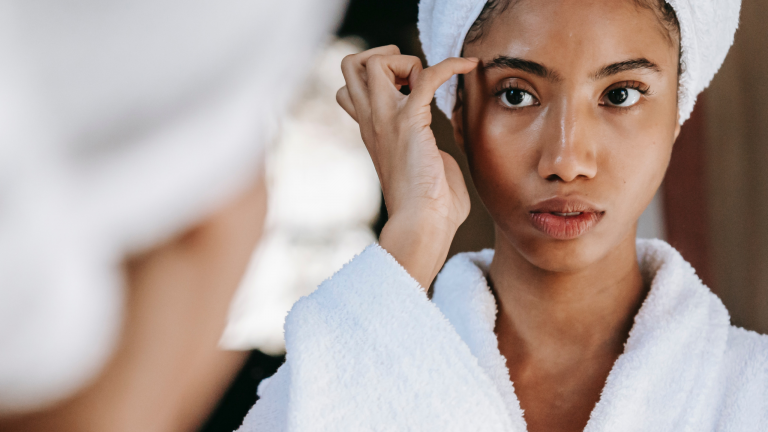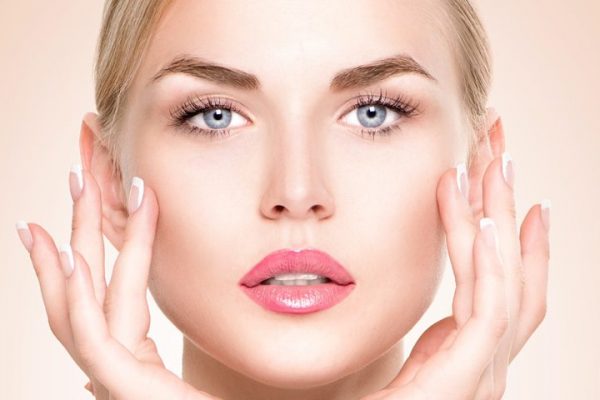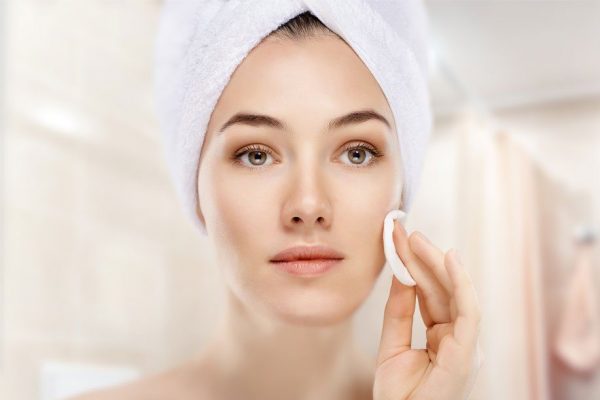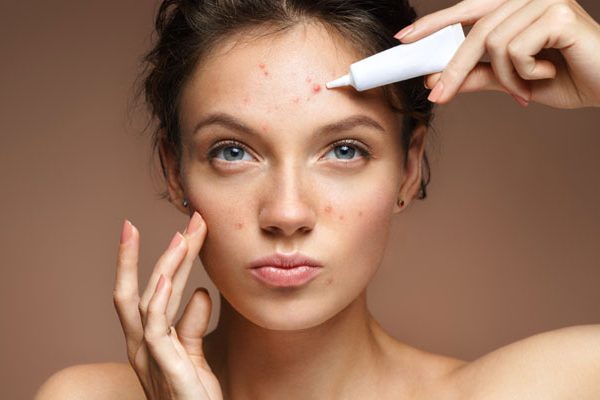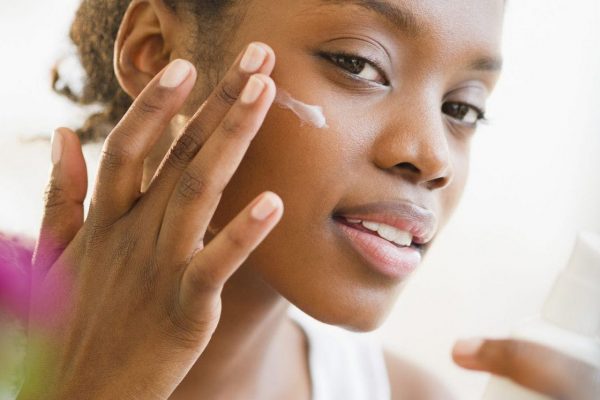Pimples, blemishes, blackheads… Anyone with impure skin or even (severe) acne is usually not precisely happy. The “sprinkles” on the face, décolleté or back are an aesthetic problem for many affected, although they are generally not a cause for concern. Countless creams, pastes, washing lotions and other products are available to combat impure skin. Read what helps.
What helps against impure skin? What helps depends, among other things, on the skin type. In general: Do not press around on pimples, and use cleaning and care products suitable for your skin type (if possible pH-neutral).
Causes of impure skin: e.g. B. hormonal changes or excessive sebum production. Stress, poor diet and the (room) climate can also promote pimples, blackheads and acne.
When to go to the doctor? You should see a dermatologist if you have long-lasting, extensively impure skin or if you are suffering severely.
Skincare options: e.g. medication such as vitamin A acid derivatives or bactericidal solutions
What disease is causing my symptoms?
Impure skin: what helps?
Even if photo filters and social media glossy images suggest otherwise: very few people are lucky enough to have flawless, clear skin. Almost everyone occasionally develops pimples, blackheads or even acne. You usually don’t have to see a doctor because of a few bumps. It is often enough to change your eating and living habits or treat impure skin yourself with suitable products from the drugstore or pharmacy. Which one right depends, among other things, on your skin type:
Normal skin
The optimal case. It has neither too much nor too little fat and moisture and is easy to care for. Blemishes are not a huge problem, but can, e.g. B. caused by hormonal changes, incorrect care or air-conditioned/heated room air. Then cleansing milk followed by a facial tonic can help.
It has large pores, is shiny and prone to breakouts and acne. Sometimes it is hereditary. In other cases, it is caused by hormonal changes (e.g. during puberty) or medication. Since oily skin is insensitive, you can usually use cleansing gel, alcohol-based facial tonic and drying care products.
Dry skin
It has a limited protective function and should, therefore, only be cared for gently. The problem here is fewer blemishes (germs find harder to settle) than irritations, wrinkles and inflammation. Only use mild cleaning products (if at all). Products rich in moisture and fat relieve feelings of tension.
Combination skin
The so-called T-zone (forehead, nose, chin) is greasy; the rest is dry. This means that there must be appropriate care for both skin types. In addition, you can do the following to improve blemished skin:
- Don’t doctor yourself and prefer not to pop the pimples yourself. It is best to put impure skin in the experienced hands of a beautician – she will professionally remove blackheads. Otherwise, further inflammation and scars can develop.
- It is best to clean impure skin only with “pH-neutral” (pH about 5.5 – this corresponds to the natural protective acid layer of the skin), mild, perfume-free and skin-friendly soaps or washing lotions. And don’t wash your skin too often either, as this can destroy the acid mantle and worsen blemished skin.
- Use water-based products (oil-free makeup, sunscreen, etc.). Creams and cosmetics containing fat or oil clog the pores and promote impure skin.
- Products with fruit acids, salicylic acid or lactic acid often beautify the skin.
- Covering measures and complexion-correcting makeup are recommended and good for the soul. There are unique products for impure skin, recognisable by information such as “non-comedogenic” (does not clog the pores) or “oil-free”.
- Ensure your impure skin does not get too cold, heat or UV light. Too much sun can make pimples, blackheads and acne worse.
- Even if the influence of diet on impure skin has not been proven: make sure you eat a healthy diet with lots of fruit and vegetables and drink a lot – around two litres of liquid a day is recommended.
- Get plenty of exercise in the fresh air – it boosts your metabolism and is also suitable for your skin.
- It is best not to touch your face with your hands. There are many bacteria on the palms of the hands, which is why regular hand washing is generally advisable for your health.
- Use different towels for your face and hands.
- Consume substances and foods in moderation that could aggravate your blemished skin. It is best to observe whether certain substances promote impure skin.
